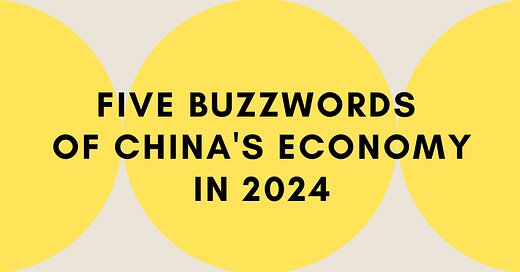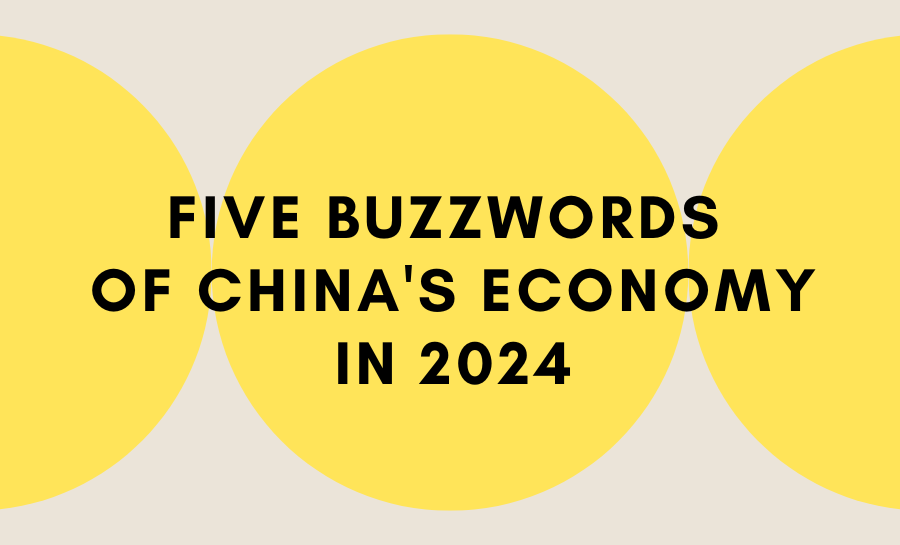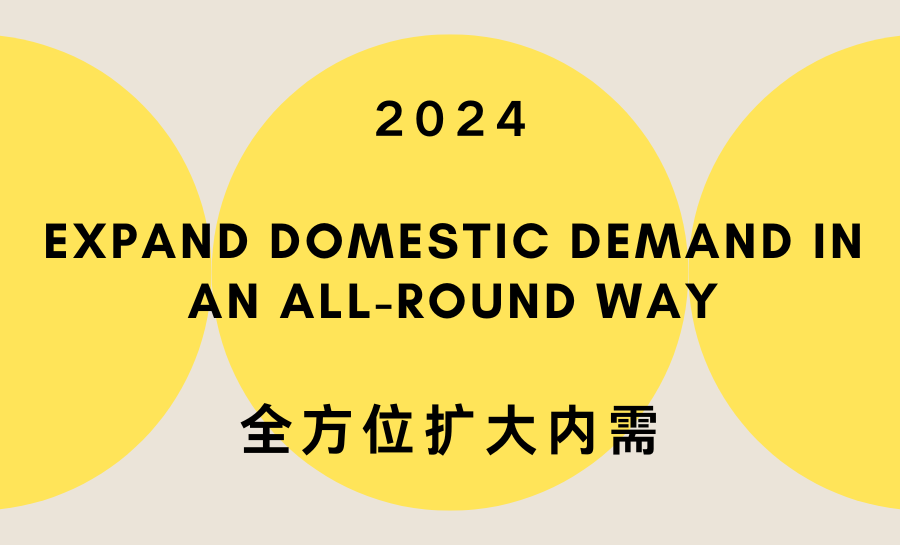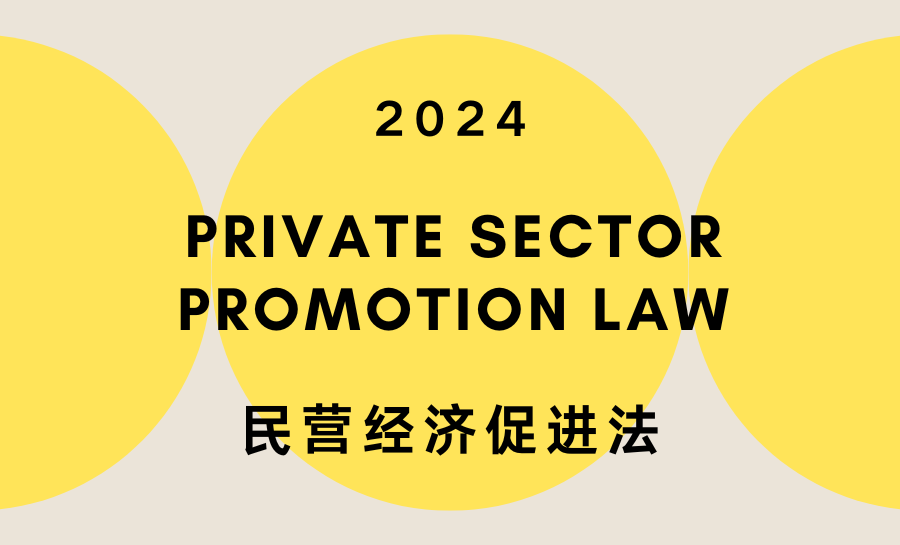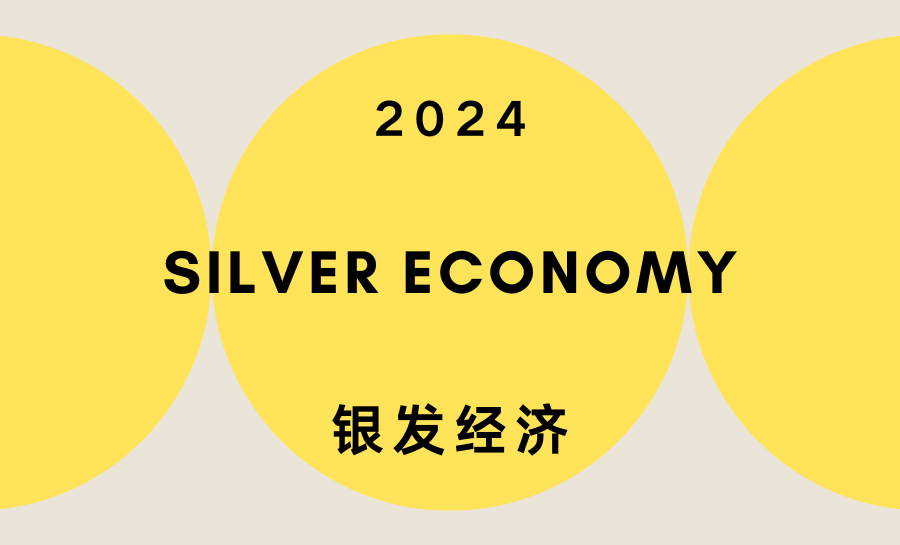Good morning or good evening! It's Yifei here, and I hope this newsletter finds you well.
Anyone who has been following China closely this year might agree that 2024 was not quite easy for the country's economy.
From the Two Sessions to the third plenum of the 20th Communist Party of China (CPC) Central Committee, the Politburo meeting on Dec. 9, and the most recent Central Economic Work Conference, a series of extremely important conferences have been held throughout the year to navigate the world's second largest economy through challenges.
Yuzhe, my colleague at Xinhua and founder of Gen-Z Glimpse, and I have selected five buzzwords (originally ten, but we narrowed it down to five for brevity) from these key economic meetings:
新质生产力 New Quality Productive Forces
全方位扩大内需 Expand Domestic Demand in An All-round Way
更加积极有为的宏观政策 More Proactive and Impactful Macro Policies
民营经济促进法 Private Sector Promotion Law
银发经济 Silver Economy
It is worth noting that Yuzhe and I have drawn on insights from many fantastic and professional analyses by Pekingnology, Ginger River Review, and others.
We hope these terms offer a helpful glimpse into the dynamics of China’s economy in 2024. Some were newly introduced this year, while others gained steam within the year. As 2025 marks the final year of the 14th Five-Year Plan, these buzzwords may also provide some insight into the economic trends that could influence the year ahead.
If you're interested in learning more about where China's economy might be headed, I highly recommend you the latest episode of Got China featuring respected economist Professor Yao Yang from Peking University.
BTW, this newsletter is actually inspired by Realtime Mandarin's China's "official" top internet buzzwords of 2024, so a big shout-out to Andrew Methven.
Hope you enjoy the read and Happy New Year 2025!
1、新质生产力 New Quality Productive Forces
2024 is technically the first year of comprehensive development for the "New Quality Productive Forces (NQPFs)."
The first time that NQPFs appeared in official rhetoric was in September 2023, during President Xi's inspection tour in northeast China's Heilongjiang. Since then, it has been featured in Chinese state media in numerous high-level documents. The 2024 government work report also, for the first time, included the term and even put it as the first and foremost part of the "Major Tasks for 2024."
NQPFs, I would say, is quite an "umbrella term" -- its definition must be interpreted within the context to be fully understood. A clear and succinct definition, if you ask, could be found in the readout from this year's first Politburo learning session:
概括地说,新质生产力是创新起主导作用,摆脱传统经济增长方式、生产力发展路径,具有高科技、高效能、高质量特征,符合新发展理念的先进生产力质态。
In a nutshell, the new productive forces are primarily driven by innovation, and break free from traditional economic growth modes and productivity development paths; they feature high technology, high efficiency, and high quality, and are advanced productivity required by the new development philosophy.
Other high-level documents & readouts featuring NQPFs in 2024:
Government Work Report 2024
(一)大力推进现代化产业体系建设,加快发展新质生产力。充分发挥创新主导作用,以科技创新推动产业创新,加快推进新型工业化,提高全要素生产率,不断塑造发展新动能新优势,促进社会生产力实现新的跃升。
1.Striving to modernize the industrial system and developing new quality productive forces at a faster pace. We should give full rein to the leading role of innovation, spur industrial innovation by making innovations in science and technology and press ahead with new industrialization, so as to raise total factor productivity, steadily foster new growth drivers and strengths, and promote a new leap forward in the productive forces.
The third plenum of the 20th CPC Central Committee
(8)健全因地制宜发展新质生产力体制机制。推动技术革命性突破、生产要素创新性配置、产业深度转型升级,推动劳动者、劳动资料、劳动对象优化组合和更新跃升,催生新产业、新模式、新动能,发展以高技术、高效能、高质量为特征的生产力。
(8) Improving the institutions and mechanisms for fostering new quality productive forces in line with local conditions. We will work to facilitate revolutionary breakthroughs in technology, innovative allocation of production factors, in-depth industrial transformation and upgrading, and the optimal combination of laborers, means of labor, and subjects of labor as well as their renewal and upgrading. All this will give rise to new industries, new business models, and new growth drivers and promote the development of productive forces that are characterized by high technology, high performance, and high quality.
健全相关规则和政策,加快形成同新质生产力更相适应的生产关系,促进各类先进生产要素向发展新质生产力集聚,大幅提升全要素生产率。
Relevant rules and policies will be improved to accelerate the formation of relations of production that are more compatible with new quality productive forces, and to channel various types of advanced production factors toward the development of new quality productive forces. These steps will help realize a significant increase in total factor productivity.
Central Economic Work Conference
二是以科技创新引领新质生产力发展,建设现代化产业体系。
Second, efforts should be made to drive the development of new quality productive forces through scientific and technological innovation and build a modernized industrial system.
2、全方位扩大内需 Expand Domestic Demand in An All-round Way
The 2024 Central Economic Work Conference (CEWC) has elevated the expansion of domestic demand to the foremost priority among the key tasks for 2025.
In comparison to 2023's CEWC, the wording shifted from "着力扩大国内需求 focus on expanding domestic demand" to "全方位扩大国内需求 expand domestic demand in an all-round way."
Central Economic Work Conference
一是大力提振消费、提高投资效益,全方位扩大国内需求。实施提振消费专项行动,推动中低收入群体增收减负,提升消费能力、意愿和层级。适当提高退休人员基本养老金,提高城乡居民基础养老金,提高城乡居民医保财政补助标准。加力扩围实施“两新”政策……更大力度支持“两重”项目。
First, efforts should be made to vigorously boost consumption, improve investment efficiency, and expand domestic demand on all fronts. A special campaign dedicated to stimulating consumption should be implemented, and efforts should be made to increase the incomes, alleviate the burdens of low- and middle-income groups, and increase the ability, willingness and level of consumption. Work should be done to appropriately raise the basic pensions for retirees and increase basic old-age benefits and government subsidies for medical insurance for rural and non-working urban residents. The large-scale equipment upgrades and consumer goods trade-in programs should be promoted with greater intensity and scope......The meeting called for better top-down organization and coordination to provide stronger support for implementing major national strategies and building security capacity in key areas.
"两新" and "两重" are key measures for the all-round expansion of domestic demand in the coming year.
The term "两新" (literally "Two New") refers to "大规模设备更新和消费品以旧换新 large-scale equipment upgrades and consumer goods trade-in programs." The term "两重" (literally "Two Major") refers to "国家重大战略实施和重点领域安全能力建设 projects for implementing major national strategies and building security capacity in key areas."
Building on the successful experiences and practices from this year, the CEWC also called for a further increase in the issuance of ultra-long special treasury bonds and an increased intensity of policy support:
Central Economic Work Conference
增加发行超长期特别国债,持续支持“两重”项目和“两新”政策实施。
The country will increase the issuance of ultra-long special treasury bonds and continue to support projects for implementing major national strategies and building security capacity in key areas, as well as the implementation of large-scale equipment upgrades and consumer goods trade-in programs.
3、更加积极有为的宏观政策 More Proactive and Impactful Macro Policies
2024 has seen Beijing's first change of its macro policies -- both monetary and fiscal -- over the past 14 years.
On Dec. 9, during the meeting of the Political Bureau of the CPC Central Committee, China pledged to transition its monetary stance to moderately loose once again and to adopt a more proactive fiscal policy next year.
It is noteworthy that for one, this marks the first "稳健 prudent" to "适度宽松 moderately loose" transition in the country's monetary stance since 2011. For another, this is also the first time that a "更加 more" is added before "积极的 proactive" in describing the fiscal policy. This shift highlights a notable and proactive change in both monetary and fiscal policy directions since the country established its macroeconomic control system in 1993.
Central Economic Work Conference
要实施更加积极的财政政策。提高财政赤字率,确保财政政策持续用力、更加给力。加大财政支出强度,加强重点领域保障。
The country should adopt a more proactive fiscal policy. It should set a higher deficit-to-GDP ratio and ensure that its fiscal policy is continuously forceful and more impactful. Efforts will be made to increase the intensity of fiscal spending and strengthen support for key areas.
要实施适度宽松的货币政策。发挥好货币政策工具总量和结构双重功能,适时降准降息,保持流动性充裕,使社会融资规模、货币供应量增长同经济增长、价格总水平预期目标相匹配。
A moderately loose monetary policy should be implemented, the meeting noted, calling for efforts to leverage the function of monetary policy tools in both quantity and structural terms. It said the reserve requirement ratio and interest rates should be reduced at an appropriate time, noting that ample liquidity should be maintained and that the growth of social financing and money supply should match the expected targets for economic growth and price levels.
4、民营经济促进法 Private Sector Promotion Law
2024 has witnessed the formulation of China's first basic law specifically focused on its private sector.
Following a top document (known as the 31-point guideline) on China's private economy issued in 2023, China accelerated the support for its private sector in 2024. In February, the draft of the private sector promotion law was initiated, with public input starting in October and submission to the legislative body for review by the end of December. Notably, this marks the first time direct stakeholders have been allowed to participate in the legislative process.
The private sector promotion law is a further move, according to the authority, to deepen China's economic reform and opening up, as well as improve the socialist market economy system.
According to President Xi, in 2018, the private economy contributed over 50% of tax revenue, more than 60% of GDP, over 70% of technological innovations, 80% of urban employment, and accounting for over 90% of all enterprises.
High-level documents & readouts featuring the private sector:
Government Work Report 2024
全面落实促进民营经济发展壮大的意见及配套举措,进一步解决市场准入、要素获取、公平执法、权益保护等方面存在的突出问题。提高民营企业贷款占比、扩大发债融资规模,加强对个体工商户分类帮扶支持。
We will fully implement the guidelines and their supporting measures on promoting the development of the private sector and further address prominent problems concerning market access, access to factors of production, impartial law enforcement, and protection of rights and interests.
The share of loans to private businesses will be increased, and the scale of financing for private businesses raised through bond issuance will be expanded. We will provide more assistance and support to self-employed individuals on a category-by-category basis.
The third plenum of the 20th CPC Central Committee
坚持致力于为非公有制经济发展营造良好环境和提供更多机会的方针政策。制定民营经济促进法。
We will continue to implement principles and policies that help foster a favorable environment and create more opportunities for the development of the non-public sector. We will formulate a private sector promotion law.
Central Economic Work Conference
发挥经济体制改革牵引作用,推动标志性改革举措落地见效。高质量完成国有企业改革深化提升行动,出台民营经济促进法。
Efforts should be made to give full play to the driving role of economic system reform and ensure that landmark reform measures are effectively implemented. The initiative to deepen and upgrade the reform of state-owned enterprises should be completed in a high-quality manner, a private sector promotion law should be rolled out.
5、银发经济 Silver Economy
2024 has seen China's first policy document specifically dedicated to the silver economy.
In January this year, the State Council issued the《关于发展银发经济增进老年人福祉的意见》Opinions of the General Office of the State Council on Developing the Silver Economy and Improving the Well-being of the Elderly.
This document provides a clear definition of the silver economy, describing it as the total economic activities related to providing products and services for the elderly, as well as preparing for the aging stage of life.
It is worth noting that the government work report this March, the resolution of the third plenum of the 20th CPC Central Committee this July, and the recent CEWC all highlighted the development of the silver economy.
Government Work Report 2024
加强城乡社区养老服务网络建设,加大农村养老服务补短板力度。加强老年用品和服务供给,大力发展银发经济。
We will step up the development of elderly care networks in urban and rural communities and redouble efforts to strengthen elderly care services in rural areas. More products and services for senior citizens will be provided, and a further push will be made to develop the silver economy.
The third plenum of the 20th CPC Central Committee
积极应对人口老龄化,完善发展养老事业和养老产业政策机制。发展银发经济,创造适合老年人的多样化、个性化就业岗位。
To actively respond to population aging, we will refine the policies and mechanisms for developing elderly care programs and industries. We will develop the silver economy and support the creation of diverse jobs tailored to elderly people.
Central Economic Work Conference
积极发展首发经济、冰雪经济、银发经济。
Active efforts should be made to develop the debut economy, ice and snow economy and silver economy.
The development of China's silver economy is driven by the deepening aging trend and the country’s position as home to the largest elderly population in the world.
According to estimates from 中国老龄科学研究中心 the China Research Center on Aging, the current scale of China's silver economy is approximately 7 trillion yuan, accounting for around 6% of GDP. It is projected that by 2035, the scale of the silver economy will reach 30 trillion yuan, offering tremendous growth potential.
Earlier this month, a newsletter from Beijing Scroll dilated on this issue by looking at a recent report in this regard.

